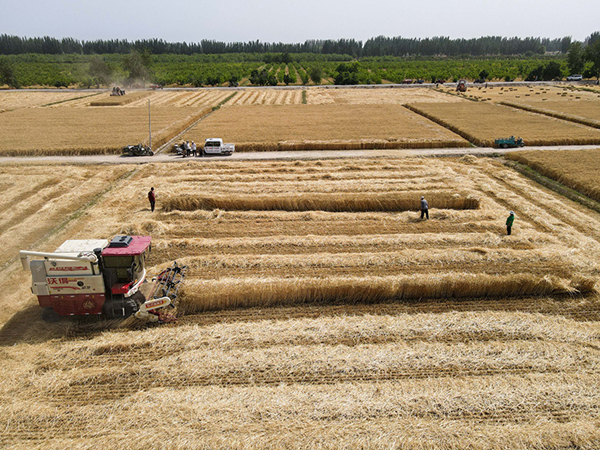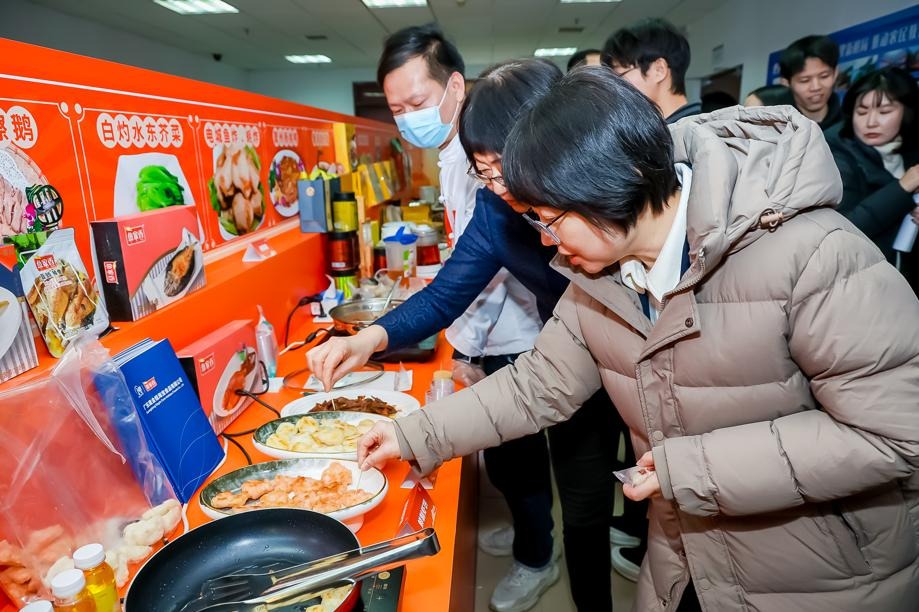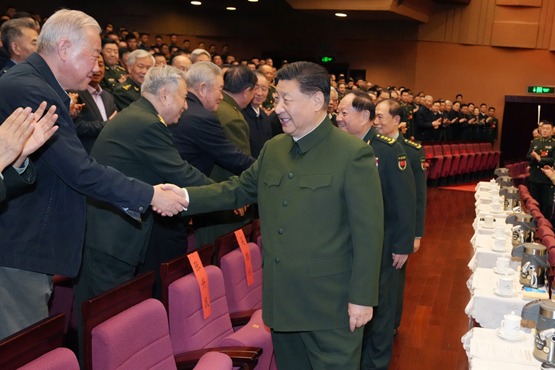International conference to tackle lost agricultural output


Curbing waste in agricultural production bolsters output and more international cooperation can help deliver that goal, Vice-Minister of Agriculture and Rural Affairs Ma Youxiang said on Tuesday.
He was briefing the media about the three-day International Conference on Food Loss and Waste that will open on Thursday in Jinan, Shandong province, a major grain production area.
The conference was proposed by President Xi Jinping in November at the 15th Summit of G20 Leaders.
It aims to bolster global exchanges in agricultural talent, technology and policymaking and reduce unnecessary waste, including in food production, storage and consumption, Ma said.
Globally, food loss stands at 14 percent of output, Ma said, citing a 2019 report by the Food and Agriculture Organization of the United Nations.
"That's a rather large share. Food is produced with great effort, but 14 percent is simply wasted," he said.
The problem has afflicted developing and developed nations alike.
In developing countries, waste is mainly due to poor infrastructure and outdated technologies and equipment, whereas developed countries lacked motivation to reduce losses, Ma said.
He said global output of food totaled roughly 2.8 billion metric tons. If waste was reduced by 1 percentage point, 28 million tons of food would be saved, enough to sustain 70 million people for a year, or equivalent to the output of 5.33 million hectares of farmland, he said.
Ma said the effort to reduce food waste will be a "systematic project "that entails global cooperation, as reforms are needed in areas including food production and consumption, domestic supply chains and international trade.
Ma said China has made huge efforts in minimizing food waste, mainly by upgrading agricultural facilities and logistics infrastructure.
It was highlighted in this year's "No 1 Central Document", the first document issued by the Central Committee of the Communist Party of China and the State Council each year.
China's top legislature enacted an Anti-Food Waste Law in April and stepped up publicity about the issue.
Ma said China values exchanges in the agricultural sector and is willing to help developing countries bolster their food security.
The Jinan conference will showcase China's waste-curbing efforts as well as the country's knowledge of agricultural equipment, breeding and the application of the internet of things in the sector.
Agriculture ministers from a number of G20 members, including Italy, the United States, United Kingdom, France and Indonesia, will attend the event.
Attendees will also include representatives of international organizations, diplomats, scholars and executives from overseas companies, Ma said.
The event will help build a global consensus, bolster the resilience of the world's food security and contribute to the "zero hunger" target that the United Nations set for 2030 in its sustainable development goals, he said.
UN data showed that 155 million people around the world were living in the shadow of food insecurity last year, a record high over the past five years.
The global food supply chain was disrupted by the COVID-19 pandemic, with around 20 countries imposing limits on food exports. Plagues of locusts also damaged crops in a number of countries.
Ma said China is a major grain producer, the largest food importer and the second-largest exporter.
Its grain output was 669 million tons last year, the sixth consecutive year above 650 million tons.
"China has cemented its ability to feed itself, a huge contribution to the world's food security," he said.
The UN's Food Systems Summit and the G20 Agriculture Ministers Meeting will also be held this month.





































